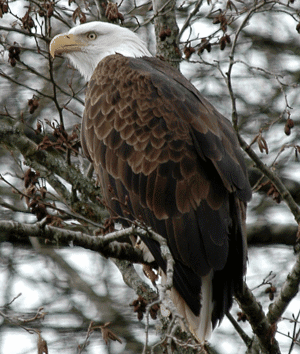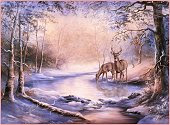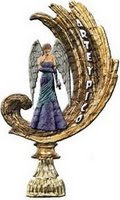This is a story I wrote in the early 90s. I hope you enjoy it as much as I did writing it. The character of Old Joe is based on a street person I got to know when I drove taxi. However, the story is strictly fiction. Enjoy!

The man sat on the sidewalk, in the warm sour breath of a grate’s gaping mouth. His gray, beard was scraggly and matted with dirt. His lips and chin were mottled with nicotine stains. Heavy lines creased his leathery skin, thickened from years of enduring the elements. Max was forty seven.
It’s colder tonight, he thought. Max pulled his beaten overcoat closer to his frail body. He took a dog-eared photograph from the inside pocket of his coat. He stared at it longingly. If only…! A tear trickled down his cheek. He whisked it away. He’d taken the snapshot on a Sunday afternoon, back when there had been Sundays, and there had been happy afternoons – back before the accident. He had been so proud when Helen had brought their new baby home from the hospital. Angeline they had called her. Angel for short. Now, that’s exactly what she was.
They’d been such a happy family. Then, the argument. He had wanted to go fishing with the boys for the weekend. She’d had a premonition she’d said. Something terrible would happen if he went. He’d laughed at her and gone anyway.
The next day, the police had been waiting when he and the boys came in off the lake. His wife and infant daughter were dead. Killed, when a drunk driver ran them down as they crossed the street. Both had died instantly.
He remembered nothing of the funeral. He did remember the turn his life had taken afterwards. He had lost himself in the bottle. Drunk for days at a time. He’d felt he had nothing to live for. Because of the whiskey, he’d lost everything. Within three months, he’d gone from a prominent businessman, to a skid row bum. His only possessions were the watch Helen had given him just before she died, and his precious flask.
Earlier that day, he had taken a walk up Strawberry Hill, the ritzy part of town. He went there every Thursday, their garbage day, to see what he could find. Today, he had hit it big and added to his possessions. He now owned a dirty blue blanket.
Max slipped the photograph back into his pocket. No sense worrying about what might have been. He crept closer to the grate. It didn’t help. Usually, he could get comfortable here. Not tonight. It must be the coldest night of the year. At least there wasn’t any wind.
Max had friends. Which one will freeze tonight, he wondered. In these temperatures it could be anyone.
Max had lived on the streets for over twenty years. This was the only home he had, or expected to have for the rest of his life. All over one fishing trip. The guilt still boiled deep down in his gut, like slow acting poison. He pulled his flask from his pocket, tipped it to his lips, and took a long swig. He felt the golden liquid slip down his throat, burning all the way. He looked at the bottle. Cheap rot gut! But it warmed his insides and chased the guilt into oblivion.
Carefully, he put the flask back into his pocket, wiping a trickle of whiskey from his beard. He couldn’t afford to lose any more of his friends to this freezing weather. This year alone, he’d lost three. Old Lucy had been the last. Just last week, they’d found her in an alley over on Bridge Street. She’d crept into a crawl space to get out of the sleet and snow. Someone had seen her feet sticking out of the hole and had called the police. An ambulance had come and taken her away. She was dead. Frozen to death, sleeping in a hole like an animal.
Max shook himself. Why was he thinking such morbid thoughts? Things didn’t usually affect him this way. Just old age creeping up. No use being bitter. Life dealt the cards. Some just got better cards than others.
Max lifted his arm in the faint glow of a distant street light. His watch said ten-thirty. It was still early. Every so often, he took another swig from the flask. He began to doze off. His chin drooped onto his chest.
Max woke! He listened carefully. He’d heard something. A man on the street sleeps light. Else he might not wake up. They’d kill you for a nickel out here. Then, he heard it again. The shuffle of feet. They drew closer.
"Hi Old Joe. How’s it going?" Max greeted.
Old Joe stood next to the grate. His arms stretched over it. He rubbed his hands vigorously. "Same as usual," he said, his teeth chattering. "Sure is darned cold. Takes a man’s breath away." Old Joe was wheezing.
"It ain’t got any better either," Max replied, putting his hands under his arms.
Max noticed Old Joe was more bent than usual. He wondered if Joe would make it through the night.
"I wonder which one of us will go tonight," Old Joe said. "Someone’s bound to. It’s the worst night of the year. Ya know Max, I don’t see how any of us can make it ‘till spring. They say it’s the coldest winter in thirty years. I believe it. I never had such a bad winter."
"I’ve been wondering the same thing myself," Max told him. "How many years you lived here Joe?"
Max wasn’t sure Old Joe would answer. No one knew Joe’s story.
"Don’t rightly know," Old Joe said. "Must be nigh onto forty years. I’m getting’ real tired Max. Ya know, I been livin’ here so long I can’t rightly remember how old I am. Sometimes I feel I can’t go on. For some reason I do. Life sure dealt me a lot of blows. Don’t seem fair, one getting’ all the bad while others get all the good."
Max heard the bitterness in his friend’s voice. He looked at Joe. A sense of foreboding washed over him. Was this the kind of premonition that Helen had spoken of so many years ago?
"Self preservation," Max assured him.
"Huh?" Old Joe looked up.
"Why we go on, Joe. It’s self-preservation. We’re born with it. It keeps us going even after we think we’ve given up."
"I suppose," Old Joe agreed weakly, wiping water from his eyes. "I never told nobody before Max, but bein’ here is my own doing."
"How’s that?" Max asked
"I had it all ya know. A wife, two beautiful sons - even a house that was paid for. I had money too. Lots of it. My Daddy and Granddaddy left it to me. I wouldn’t stop my wild ways. I was hooked. Booze, partying, women. My game was live for today, tomorrow you might be dead. I loved women - every woman but my wife, Jean. She warned me enough times. One night I came home, drunk as usual. Jean and the boys were gone. I never saw ‘em again. I looked for awhile. Then, I gave up. Went back to the wild life. Lived every day like it was my last. Just partied. Got into gamblin’. One day I woke up hung-over. I was dead broke. I mean every penny. I’ve lived here ever since. Sure don’t seem fair somehow."
Max looked at Joe in amazement. Joe usually didn’t talk so much.
"Ain’t never tol’ no one ‘cept you," Joe confided.
"It won’t go any further. You know that, Joe," Max said. He shifted his legs, trying to stop the numbness that crept along them.
As he watched Old Joe standing by the grate, he marveled at how a man could live like this for forty years and still have the strength to go on. His twenty some had almost done him in. Old Joe had done double that. Max eyed Old Joe carefully. His face and hands were rough and weather beaten. He wheezed constantly, a deep gurgling wheeze. His eyes ran, making them red and weepy. He wore no boots. An old pair of Oxfords he’d found somewhere partially covered his gnarled bare feet. The soles flopped as he walked, held to the uppers only from instep to heel. The pants he wore were so threadbare that his legs showed through. A summer sports coat hung over his shoulders. It was at least three sizes too big, paper thin, and had no lining. How would he ever survive these Arctic temperatures, Max wondered. It hadn’t let up for days. If rumor had it right, there was at least another week of it to go. Max sighed deeply. How could he help Old Joe?
Max knew how independent and stubborn Old Joe was - all street people for that matter. They didn’t want pity or charity. Most had accepted their lot in life. Still, Max had to try. "Where are you planning to spend the night, Joe?" he asked.
Don’ know. Hadn’t give it much thought. I’ve been tryin’ to figure out how to get another bottle. I’m a bit short. Store’s closed now. Guess I’ll have to wait ‘till mornin’. As far as sleepin’ goes, it makes no difference. One place is cold as the next." He shrugged indifferently as he spoke.
"Want to stay here?" asked Max.
Old Joe looked thoughtful. "I don’ like invadin’ another man’s territory. I’ll find a place somewhere."
"I sure would like some company." Max made it sound like Joe would be doing him a favor. "I don’t feel much like being here alone tonight. There’s plenty of room for both of us here. It’s warm by the grate. Besides, I found something today that will help us out."
Max fumbled behind a pile of trash. Old Joe stared at him in disbelief. In his hands, Max held a large, dirty blanket.
Old Joe’s eyes glimmered. He sure was cold. He could use that blanket. "Where’d ya find that?" he asked warily.
"Don’t worry, it ain’t stolen," Max assured him. "Though it would be warmer in the jail over on Echo Street. Even at that, I don’t want to go there any more than you."
"I asked where ya got it," Old Joe snapped.
"I’m coming to that." Max ignored Old Joe’s moodiness. He was used to Joe. "I took a walk up the hill today. Found it in one of those snobby people’s garbage. It’s a bit dirty but it’ll be warm.
Joe licked his lips. "But it’s yours. You’ll need it," he said, eyeing the blanket, wishing he had been the one to find it.
"It’s one of those king or queen blankets, Joe. It’s big enough to cover a horse. We both can use it. Even then, there’ll be some left over." Max held the blanket out full. Old Joe could see how big it was. "I sure was lucky to find it. You’re my friend, Joe. I want to share it with you."
Old Joe was still suspicious. He and Max had been friends for a lot of years. On the street everyone fended for himself. Why was Max all of a sudden so willing to share?
"Ah, come on Joe," Max coaxed. "It’s only for one night. A darn bitter one at that. The winds coming up. It’s going to drop another twenty degrees. Besides, I told you. I need some company."
Old Joe could feel the change in the temperature already. The wind whipped around the corner. Joe hunched his shoulders against it. The clothes he had on barely covered him. They did nothing to protect him from the deep freeze that had set in. Now, the wind was blowing fiercely. He may as well not have anything on. "Well, OK," he gave in. "But don’t expect me to do it often. Can’t have people sayin’ Old Joe’s getting soft."
"No ones gonna say that," Max assured him. "They all know you too well."
Old Joe sat down beside Max. The men sat silently for a while, each deep in their own thoughts. Finally, Max reached in his pocket and pulled out a flask.
"We’d better have a little medicine before we turn in," he laughed, tipping the bottle to his chapped lips. "Want some?"
"Got my own," Old Joe stated. He reached inside his shirt, producing his own bottle. "Sure does help to warm a body up. I just hope I can pan handle a couple of bucks in the mornin’. I’ll need another jug by then."
The two men sat chatting and drinking. Max was baffled by Old Joe’s actions. He’d talked more tonight than he had in two years. It sure was strange.
Old Joe couldn’t figure what Max was up to. He’d never seen Max so open and sentimental.
Neither of the men asked any questions. They trusted each other as much as a man can trust anyone on the streets. It was just unusual.
Max was the first to put his flask away. "Better save some for morning," he cautioned. "We’ll need it. I swear it’s getting colder by the minute."
"Sure seems that way," Old Joe replied. "We’ll freeze for sure if it keeps up."
Max scratched his head thoughtfully, looking at the crate against the wall. "I figure I got an idea, Joe. Give me a hand."
"Watcha gonna do now?" Old Joe asked grumpily. He was tired and the whiskey was starting to affect him.
"Help me move this crate over by the grate," Max said. "It’s big enough we can both get inside. If we face the opening to the grate, some heat will seep in."
"Good idea," Joe exclaimed. "It’ll be like havin’ our own little house."
The men moved the crate nearer to the grate. Old Joe began to laugh.
"What’s so funny?" Max demanded.
"I was just thinkin’," Old Joe said between chuckles. "We fooled him again."
"Fooled who?" Max asked impatiently.
"The Grim Reaper." Old Joe chortled with glee. "We fooled him again. With this little house, the blanket and our body heat, plus the heat from the grate, we’ve got him beat. He won’t meet us tonight."
Max chuckled. Once again, he held his arm into the glow from the distant street light. "That’s funny," he said, a puzzled look on his face.
"What’s that?" Old Joe asked.
"My watch says ten to eleven. It was ten thirty before you came by." Max placed his watch against his ear. "The darn thing quit," he said with disgust, tapping the face.
"Oh well," Old Joe shrugged. "Everything wears out sometime."
Max didn’t say a word. A strange feeling came over him. Ice filled his gut. The watch was his last memory of Helen, except for the faded photograph. He touched his chest. The photo was still safe in his pocket.
The two men crept into the crate and wrapped themselves in the huge blanket.
"I’m glad he won’t get us tonight," Old Joe said. "I gotta get me a couple bucks in the mornin’ to buy another jug."
The two men laughed heartily at Old Joe’s joke. They were safe for one more night. They’d cheated Death many times before. Tonight, they’d cheated him again.
They huddled together for warmth. Each went to sleep with a smile on his face, thinking of the macabre joke they had shared earlier.
Hours later, a group of people crowded into the alley on Water Street. At the rear of the alley was an ambulance, lights flashing. Nearby, there were two police cars parked by the curb.
A middle-aged officer approached his partner, looking somber.
"Which one is it this time?" the younger man inquired.
"Two of them," the officer replied. "Old Joe and Max. They froze to death, huddled together in an old crate like two animals. Their feet were sticking out. Right by a heat vent too. Probably thought they had it made. Too bad the power went out."
"Too bad," said his partner. "They weren’t bad old guys."
The senior officer continued. "In all my years on the force, I’ve never been able to figure out why these people die with smiles on their faces. I guess I never will."
"Maybe they’re just glad to be out of this hell hole," the younger man suggested.
"Maybe, but somehow I don’t think that’s it," the veteran officer said as they reached the patrol car. "It sure is strange."
 Grandma's kitchen had no modern appliances, no fancy gadgets. It didn't even have electricity. It was a place that throughout my childhood, remained much the same.
Grandma's kitchen had no modern appliances, no fancy gadgets. It didn't even have electricity. It was a place that throughout my childhood, remained much the same. 

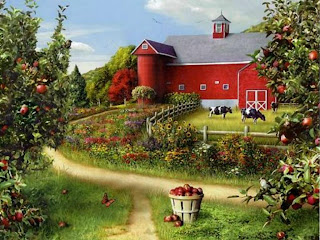
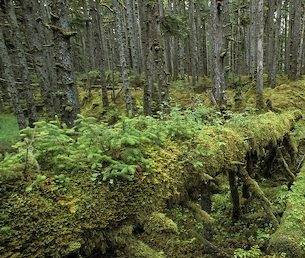

 In 1857, Tubman brought her parents to St. Catherines because she learned her father was to be arrested for helping slaves escape. The following year, John Brown visited Tubman at her home on North St. in St. Catherines. Tubman was a strong supporter of Brown.
In 1857, Tubman brought her parents to St. Catherines because she learned her father was to be arrested for helping slaves escape. The following year, John Brown visited Tubman at her home on North St. in St. Catherines. Tubman was a strong supporter of Brown. 
